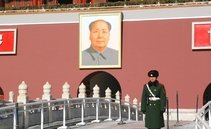Chinese stock indices have returned to record new losses, once again raising concerns about the country’s economic performance. What is happening? Is there any point in worrying?

Over the past few months, Chinese stock indexes have experienced a roller coaster that left many investors and analysts wondering whether the recent rally was just a "dead cat bounce." After an impressive bullish sprint that saw Heng Sang rise by more than 20% from March to May, the market has returned to falling at an alarming rate. In less than a month, the index has fallen 8% from its highs, casting a shadow of concern on investors. What is sinking the country’s stock market?
The fall of Chinese indices: some data
The sudden collapse of Chinese stocks has had a significant impact on market indices, especially emerging indices. Although many emerging economies are achieving super performances, the emerging indices continue to remain stuck at the lows of recent years.
Looking more closely, the last month’s performance of the CSI 300 and the SZSC also do not offer reassuring signs. Both indices suffered significant losses, with the CSI 300 falling 7% and the SZSC dropping 6%. These declines highlight how the Chinese market is suffering, influenced by a number of economic and political factors.
The iShares MSCI China A ETF, which is a key barometer of the performance of China’s higher-quality stock market, posted a negative return. The top three caps of this ETF, which include leading companies such as Kweichow Moutai, Industrial and Commercial Bank of China, and Ping An Insurance, all recorded losses. This reflects not only the weakness of the market in general but also the specific difficulties that major Chinese companies are facing in this unfavorable economic environment.
leggi anche
China’s real estate rescue plan: will it work?

What has generated this new collapse?
Several reasons lie behind this sudden collapse of the Chinese market.
Recently, the European Union imposed additional tariffs on Chinese electric cars, exacerbating economic concerns. These tariffs represent a significant blow to one of the fastest-growing sectors in China, which has seen strong demand both domestically and internationally. The European measure is seen as a protectionist response that could limit Chinese exports, thus reducing the revenues of companies in the sector and negatively influencing the stock market.
In addition, the latest inflation data have shown that the Chinese economy continues to suffer the deflationary grip, highlighting demand that still remains weak. Despite the government’s efforts to stimulate economic growth, domestic consumption has not recorded the hoped-for increase. Persistent weakness in domestic demand is a worrying sign, as it suggests that Chinese consumers are reducing spending, contributing to economic stagnation.
Original article published on Money.it Italy 2024-06-13 18:37:00. Original title: I veri motivi dietro al (nuovo) crollo del mercato azionario cinese




